An Ultimate Ranking of ‘Game of Thrones’ 8 Seasons, From Worst to Best
Let's all hop on memory lane of when GOT used to be a top show.
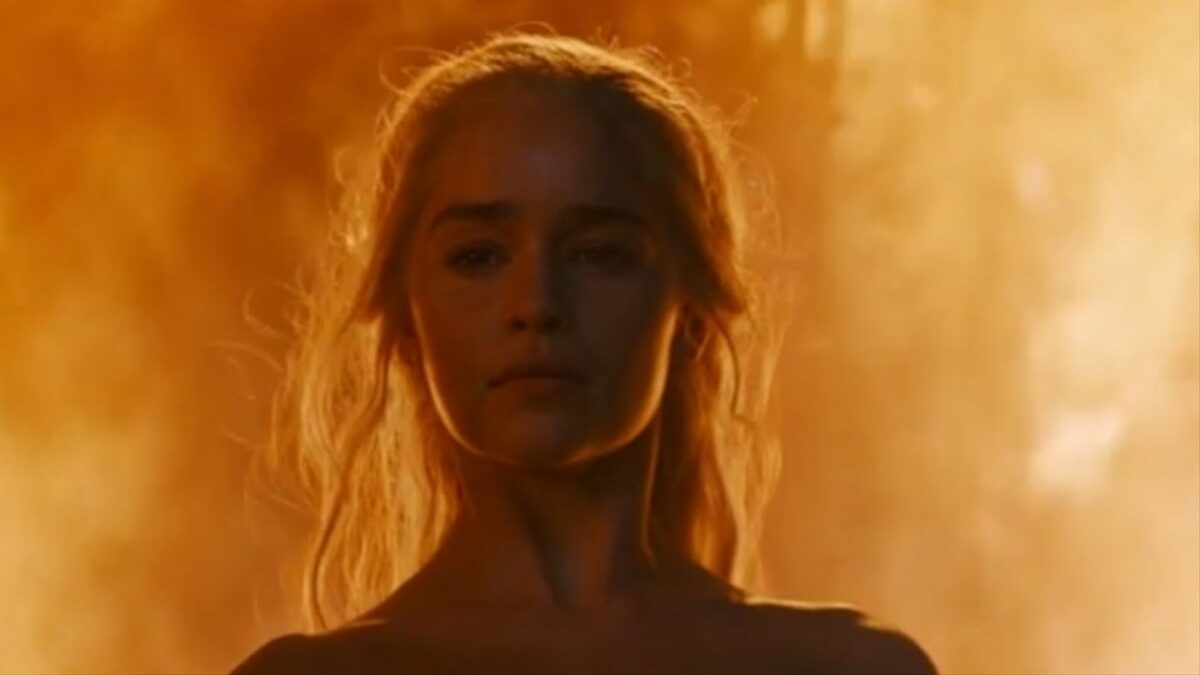
With all the buzz that surrounds the newly-released House of the Dragon, it’s only natural that fans and casual watchers alike are thinking back to Game of Thrones—that beautiful, terrible mess that had the television industry and our collective pop culture in a chokehold between 2010 and 2016.
So many words have been spent on Game of Thrones, its eight seasons, its characters, and especially its finale. But even after all of that, we still debate exactly where it went wrong, and mourn what could have been. So, let’s look back and rank the seasons, and perhaps, we can find the exact turning point toward its destruction. Here are all 8 seasons ranked from worst to best.
Season 8
Raise your hand if you’re surprised to see the final season ranked last!
Yep, zero hands raised. Look, it’s pretty universally accepted that Season 8 was so spectacularly bad that it not only killed Game of Thrones’s cultural significance but also all of its rewatch potential. I guess it’s the red wedding of GOT seasons, that thing wasn’t going to let any of the others get out unscathed.
I watch and rewatch the Lord of the Rings trilogy because, even though I can pretty much recite the entire script by heart, I know that the end will still satisfy me. What’s the point of rewatching Game of Thrones if you are fully aware of the trash fire that waits for you at the end?
And I’m not talking about, “oh, I didn’t like how that particular character’s storyline ended.” No no. I’m talking about trashing overall arching narrative motifs and throwing seven seasons of character journeys into the toilet. Then again, D&D think that themes are for “eighth-grade book reports.” That’s really all you need to know. Let’s move on now because I can only think about Season 8 for very short periods of time without becoming absolutely enraged.
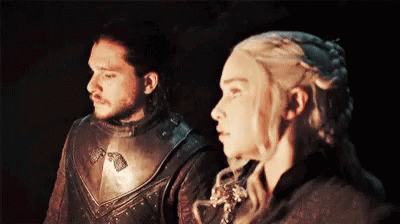
Season 7
Season 7 is still pretty bad, as are all the seasons where there was no actual physical book to adapt—with only a linear outline given to them by George R.R. Martin (and the writers trying to add some original content).
Of course, it’s not entirely their fault. The Winds of Winter has languished in George R.R. Martin’s WIP folder for more than a decade, so imagine the state A Dream of Spring —The Winds of Winter’s sequel and the book Seasons 7 and 8 should be based on—must be. If only those two books had come out in the first four years of Game of Thrones airing, a good eighteen years after A Game of Thrones was first published in 1996, things might have probably been different. But alas, ’twas not our fate.
On the other hand, it has to be said that the team behind Game of Thrones was absolutely incapable of taking things slow and developing story beats properly. Events didn’t happen in the blink of an eye in the first seasons of the show—it took time for characters to make decisions (and for the consequences of those decisions to become relevant!).
But in Season 7, it all feels like a bullet point list. Like, Character A needs to be here, and so now, they’re here! (Even though they’d already established the amount of time it takes in-universe to travel among Westeros and Essos locations. But who cares! Hurry up!) Character B needs to do X,Y, and Z to move the plot, so we’re making them do it without expanding on their motivation. (Even if it makes absolutely no sense based on 6 seasons of the character’s journey we’ve watched! Whatever!)
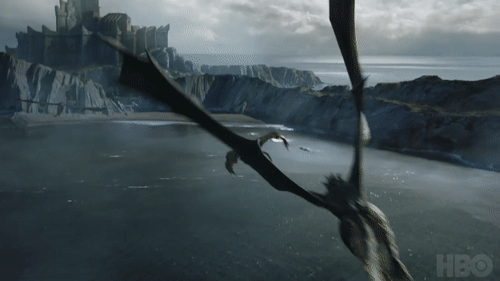
Season 6
Believe me when I tell you that I do not make it my favorite pastime to dunk on Game of Thrones— even though it might not seem so from this list. But I’m like the teacher—who knows their student could have gotten an A if they’d only applied themselves, but instead, they’re getting Cs and Ds. I just want them to live up to their potential, goddammit! Anyway, Season 6 suffers from the same issues as the final two seasons—albeit they were only starting to really go off the rails, so there are decent moments. But as a whole, it wasn’t looking good.
Season 6 is when actions started to have no consequences, and it was so frustrating when, previously, events and their consequences felt so natural and real. Let me give an example.
Season 6, Cersei blows up the Great Sept of Baelor (both to have her revenge on the High Sparrow and the Faith and to wipe out her political opponents—particularly Margaery Tyrell). Now. The scene is amazing and Lena Headey absolutely sells how unhinged and ruthless Cersei Lannister can be, but…where are the consequences?
When Ned Stark decided to try a coup on the Iron Throne in Season 1, he was beheaded for it. And the consequence to that action, killing Ned, sparked the Northern Rebellion and the War of the Five Kings. Which irrevocably alters the course of basically every character on the show. But what is the reaction to what Cersei does? She showed blatant disrespect for the major religion in Westeros, what are the people’s reactions? Why isn’t there any retaliation from the Reach for wiping out three members of its ruling noble house? In previous seasons, an event of this scale would have equally big repercussions— but they’re all swept under the rug in favour of plot convenience and to create scenes that are spectacular—without bothering too much about how they impact the world they’re happening in.
Would this have been as bad if the show had been like this from the start? Perhaps not, there’s plenty of fantasy media that doesn’t concern itself too much with being plausible and is still fun. But we started in a world with an intricate political system, where every single cog works in the larger game, and in that case, it’s disappointing if that’s dropped. And looks like the writers simply lost interest (which…feels like exactly what happened).
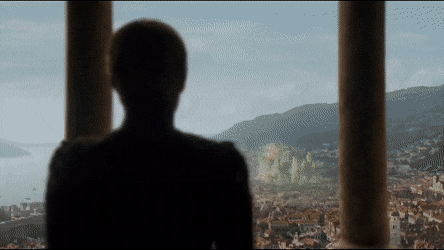
Season 5
Season 5 is salvageable, but I think it’s probably the true start of Game of Thrones’s decline—much like the Dance of the Dragons, depicted in House of the Dragon, marks the beginning of a chain of events that will lead to the Targaryen dynasty’s demise.
This season is based on the last two A Song of Ice and Fire books to be published, A Feast for Crows and A Dance With Dragons, while sprinkling in some original content—which had to be included since certain storylines had been changed from the very start of the show. For example, Tyrion has yet to meet Daenerys in the books—and that’s because Tyrion is actually following a Targaryen claimant to the Iron Throne who has never made an appearance in the show, Aegon Targaryen, supposedly Rhaegar Targaryen’s son. Aegon’s character was merged with both Daenerys’s and Jon’s in the show—so that whole storyline had to be changed. Some of the changes made sense, but there were others that were horrifying—I will not describe what happened with Sansa and Ramsay, but you know exactly what I’m talking about and some fans stopped watching after that.
That said, does Season 5 still have relatively good storytelling? Yes, when compared to what is going to come after. But it’s also the season where it becomes adamantly clear—as if it hadn’t been already—that Game of Thrones was more interested in shock value, using violence and gore, particularly toward women, than good or creative storytelling.
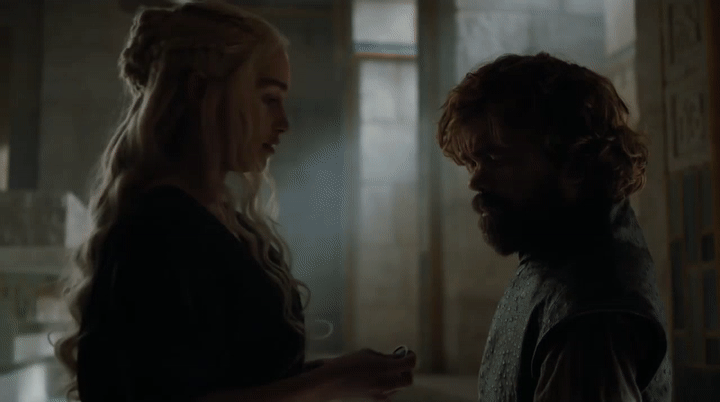
Season 4
Season 4—based on the longest A Song of Ice and Fire book, A Storm of Swords—sits firmly in what can be considered the “good” Game of Thrones. Picking up immediately after the major events of Season 3, it maintains the same excellent pacing as well as stellar performances.
One above all—Peter Dinklage, shining as Tyrion Lannister when he gets accused of poisoning Joffrey at his own wedding. The speech Tyrion gives from the stand, as he says that he “wishes he had enough poison for them all” still gives me shivers.
I also particularly enjoy Daenerys’s arc in Meereen—it would have been easier to keep her as the cool, unbeatable, conqueror with dragons, but her difficulties in ruling a city, with a culture she doesn’t understand, definitely make her a more realistic and compelling character. Plus, Arya and the Hound buddy-comedying their way through Westeros is delightful—and the change the production team made in deciding that Sandor’s supposed demise should come at the hand of another beloved character, Brienne, rather than a random accident is actually one of the few good ones they made.
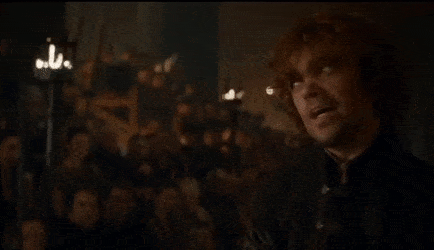
Season 2
You thought you were going to see Season 3 here, considering how the list was going, huh? Bet your expectations have been subverted. I mean, it’s not like Season 2 is meh—on the contrary, it sits firmly in the “good chunk” of Game of Thrones and it has excellent everything, from the pacing of the story to the performances of the actors.
However, I believe the other seasons in the top three have that kick, that oomph, that just makes them stand out more. Season 2 suffers slightly from the “sequel syndrome,” where the number two of any installment is somehow caught in the middle of reminding people why they loved the first film/season/book/anything while also setting up the rest of the story.
I actually debated for a while whether or not Season 2 should go before or after Season 4. But in the end, funnily enough, Tyrion was still the deciding factor. What can I say, I’m like any other basic Game of Thrones fan, I see Tyrion Lannister being an incredibly fantastic character and Peter Dinklage being stupidly charismatic and talented and I just fall all over myself.
So while I may adore Tyrion in his trial-about-to-commit-patricide era, Tyrion as Hand of the King holds a special place in my heart—yes, he did defend that absolute shit-hole that they call the capital of the Kingdom! Show him the respect he is owed!
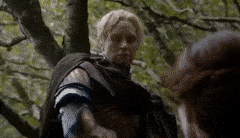
Season 1
Rewatching clips from Season 1 reminds me of simpler and happier times—when characters were well thought-out, all the Starks were alive, and it took an entire month to travel from King’s Landing to Winterfell (rather than an Assassin’s Creed-style fast travel). It’s bittersweet for sure.
Season 1 takes second place because, while I believe that there’s another season that tops it, it still is the start of what we’d love for 4 seasons—a brilliantly-crafted murder mystery, in an epic, complicated fantasy world, that does its job of introducing the multitude of characters who are going to be important.
Plus, Season 1 has Ned Stark. Ned—who we all believed was going to be the main character—and who inaugurated the tradition of “episode 9 equals something terrible happening,” and absolutely nobody, nobody, is safe. Ned, despite all the seasons that have passed since he died, remains, I think, one of the defining characters of Game of Thrones. And that is a feat.

Season 3
I will just say it—yes, one of the main reasons I put Season 3 as the best season is because of Daenerys’s iconic “Dracarys” scene in Astapor. And can you really blame me? Love her or hate her, Daenerys is the face of Game of Thrones—not only for her character design with that classic, Targaryen wig—but because of her dragons and her riches-to-rags-to-riches story and her massive pop culture impact.
That scene, where she takes control of the Unsullied, revealing that she can speak High Valyrian and that her dragons are grown enough to be used as weapons, is such a pivotal moment for her and the show. That alone makes the whole season, in my honest opinion.
But there’s no need to rely on just that scene because Season 3 is also the season of the Red Wedding. Another massive pop culture moment that cemented Game of Thrones as the show that was not afraid to kill off a whole chunk of main characters who everyone pretty much considered the “good guys”— as if there was any need to confirm it after Ned’s death. Still, it was absolutely shocking. Plus, it’s the start of the great Jaime and Brienne romance—the only ship that has made me go all fangirl in the entirety of the show. It truly was the best of times.
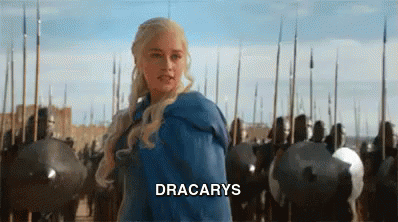
So, what do you think? How would you rank Game of Thrones’ run?
(featured image: HBO)
Have a tip we should know? [email protected]